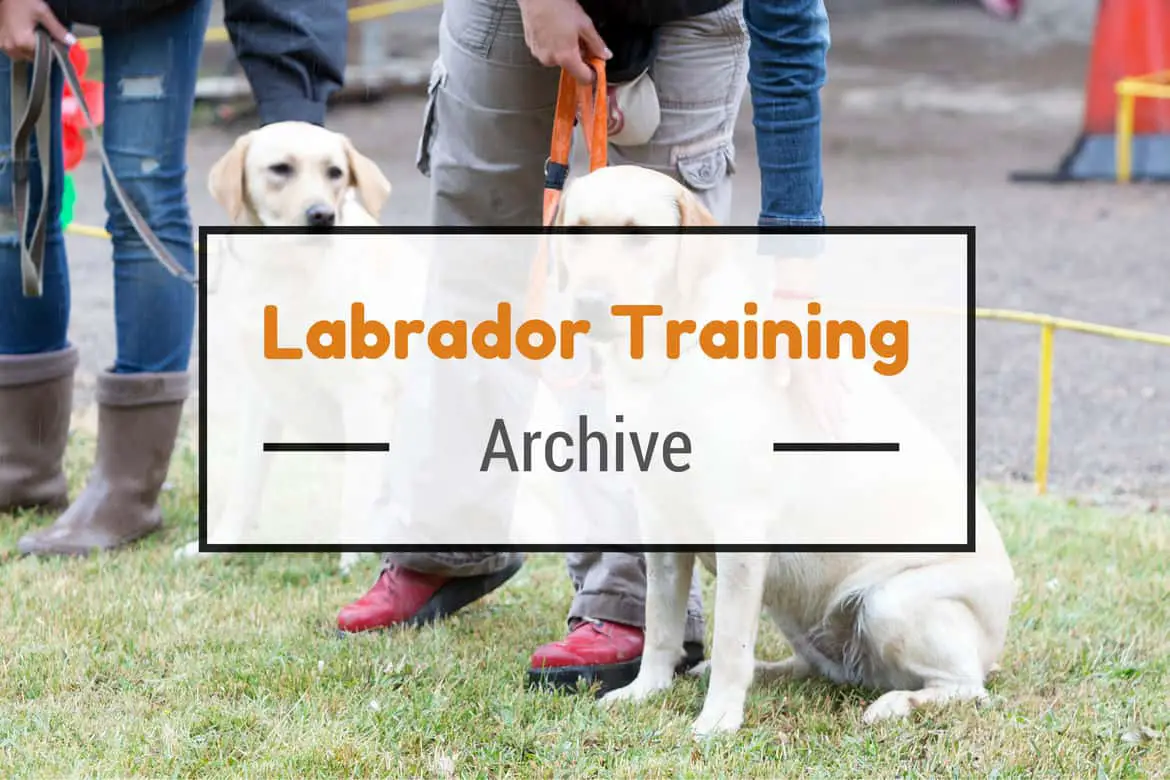Labrador Training in India is one of the talkative subjects. Labrador puppies are adorable and playful, but they can also be mischievous and rambunctious. As a pet owner, it’s important to train your Labrador puppy from an early age to ensure they grow up to be well-behaved and obedient. They have different temperaments and characteristics, which are fully discussed in Labrador Retriever: An Overview. In this article, we will explore Labrador training in India and provide some tips for pet owners.
When to start Labrador Training in India?
It is best to start training your Labrador as early as possible. Puppies as young as 8 weeks old are already capable of learning and can benefit from early training. Starting early allows you to shape your puppy’s behavior and helps them develop good habits from a young age.
Training your Labrador puppy early also helps establish a strong bond between you and your pet. It teaches your puppy to trust and respect you as their leader, making it easier to train them as they grow older.
Starting early with training also helps prevent behavior problems from developing. Addressing bad behavior early on prevents it from becoming a habit and becoming harder to correct later. Consistent training and positive reinforcement techniques can help prevent destructive behavior, such as chewing, digging, and excessive barking. For every minor detail for Labrador Puppies, visit our post-Labrador Puppies in India.
Importance of Labrador Training
Safety: Training your Labrador helps keep them safe. Teaching basic commands such as “come” and “stay” can prevent them from entering dangerous situations, such as crossing a busy street.
Socialization: Training your Labrador also helps with socialization. Introducing your puppy to different people, animals, and environments can help them become more confident and less anxious around new experiences.
Communication: Training helps you communicate with your Labrador. Teaching commands and using positive reinforcement helps them understand what you expect from them and establishes a bond between you and your pet.
Good behavior: Training helps prevent bad behavior from developing. Consistent training and positive reinforcement techniques can help prevent destructive behavior such as chewing, digging, and excessive barking. This also includes how to get groomed properly without any improper behavior. For more details, we talk about it more on our post-Labrador grooming.
Bonding: Training your Labrador helps establish a strong bond between you and your pet. Training and teaching your pet helps them see you as their leader and develop trust and respect for you. Sometimes when you adopt a pet from any organization, it makes them easy to bond with the owner and others. We discussed this organization more in our posts Labrador Rescue in India.
Mental stimulation: Training provides mental stimulation for your Labrador. Learning new commands and tricks keeps their mind active and helps prevent boredom.
Tips and Tricks for a Well-Behaved Dog
Consistency: It is a key when it comes to training your dog. Use the same commands and techniques every time you train them to avoid confusion. Consistency is very important for training your dog. Gives them the same command every time while performing a particular task so that it makes it clear for them to understand.
Positive reinforcement: Positive reinforcement is the best way to train your dog. Reward them with treats, toys, and praise when they behave well, and avoid using punishment or negative reinforcement. Every time you give them rewards, they consider their work as a good gesture and try to do it again and again to get a reward.
Socialization: Socialization is crucial for your dog’s development. Introduce to different people, animals, and environments to help them become comfortable and confident.
Exercise: Regular exercise is important for a well-behaved dog. Dogs that get enough exercise are more likely to be calm and relaxed, which makes training easier.
Use leash: Using leash when walking with your dog is not just for their safety. It also helps with training. Using a leash can help prevent your dog from running away, jumping on people, or other unwanted behaviors.
Be patient: Training a dog takes time and patience. Don’t expect them to learn everything overnight, and be consistent with your training to see the best results.
Avoid reinforcing bad behavior: Avoid unintentionally reinforcing bad behavior. For example, if your dog barks to get your attention, don’t reward it by giving attention.
Provide mental stimulation: Providing mental stimulation is important for your dog’s well-being. Toys, puzzles, and training sessions can all provide mental stimulation and help prevent boredom.
Training for a well-behaved dog
Training is essential for achieving a well-behaved dog. Here are some training exercises you can do to help your dog become well-behaved:
Basic obedience training: Basic obedience training includes teaching your dog basic commands such as “sit,” “stay,” “come,” and “heel.” These commands help keep your dog safe and also make them more manageable in different situations.
Socialization: Socialization is crucial for your dog’s development. Introduce your dog to different people, animals, and environments to help them become comfortable and confident in different situations.
Crate training: Crate training is a great way to provide your dog with a safe and comfortable space to relax. It can also help with house training and preventing destructive behavior.
Leash training: Leash training helps prevent your dog from pulling or jumping on people during walks. Starts with short walks and gradually increase the distance and time spent walking.
Clicker training: Clicker training is a form of positive reinforcement training that uses a clicker to signal to your dog that they have done something correctly. Clicker training can be used to teach new tricks and reinforce good behavior.
Potty training: Potty training is important for preventing accidents in the house. Consistency is key for potty training. Take your dog outside frequently and praise them when they go potty outside.
Impulse control training: Impulse control training teaches your dog to resist temptation and stay calm in different situations. Exercises such as “leave it” and “wait” can help improve your dog’s impulse control.
Biting Training: Biting training teaches your Labrador to stop unwanted biting and also trains when to bite and to not, which also helps them in socializing with the other dogs. For Full detailed posts, move to Best Advice to stop your Labrador from biting.
FAQs about Labrador Training in India
When is the best time to start training a Labrador puppy?
The best time to start training a Labrador puppy is between 8-12 weeks of age. However, it’s never too late to start training your dog, regardless of their age.
How important is socialization for Labrador puppies?
Socialization is crucial for Labrador puppies. Introduce them to different people, animals, and environments helps them become comfortable and confident in different situations.
What are some important commands to teach a Labrador?
Some important commands to teach a Labrador include “sit,” “stay,” “come,” and “heel.” These commands help keep your dog safe and also make them more manageable in different situations.
How can I prevent my Labrador from chewing on everything?
Providing your Labrador with plenty of toys and chew treats can help prevent them from chewing on furniture and other items. Consistent training and supervision can also help prevent destructive chewing behavior.
How can I teach my Labrador to walk calmly on a leash?
Leash training is important for preventing your Labrador from pulling or jumping on people during walks. Starts with short walks and gradually increase the distance and time spent walking. Reward your dog with treats and praise when they walk calmly on the leash.
What should I do if my Labrador is displaying aggressive behavior?
If your Labrador is displaying aggressive behavior, it’s important to seek professional help from a dog trainer or behaviorist. Avoid using punishment or negative reinforcement, s this can make the behavior worse.
How can I provide mental stimulation for my Labrador?
Providing your Labrador with toys, puzzles, and training sessions can all provide mental stimulation and help prevent boredom. Playing games such as fetch and hiding treats around the house can also provide mental stimulation.




